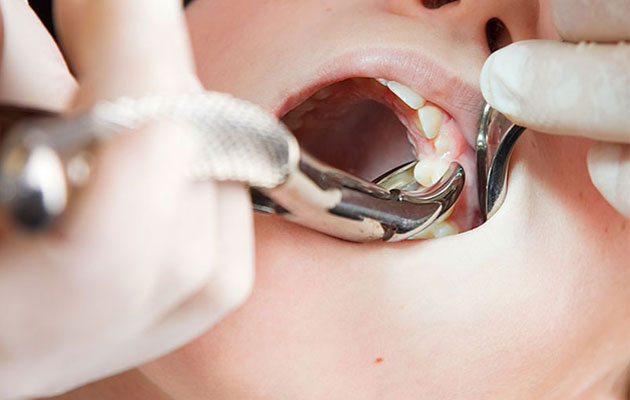Saving a compromised tooth is preferable, in most cases, rather than having it extracted. Root canal treatment or restoration are the available options.
When a tooth is severely damaged, cracked or decayed and cannot be restored, or when there is a severe infection of the tooth and/or its surrounding gum, the best solution may be tooth extraction. Immediate pain relief is the most obvious advantage of an extraction. You can also say that extraction is a very affordable solution.
There are some associated risks when a tooth is extracted and not replaced. For example, chewing may be affected or more reliance will be placed on the surrounding teeth. When more than one tooth is removed, these risks are exacerbated. In severe cases, jaw bone health may also be compromised. If this were to occur, then complex and expensive treatments and procedures would need to be performed, often costing more than would have been the case if the tooth was removed to begin with.
Tooth Extraction Suitability
In some cases, tooth extraction may be your best option to alleviate pain or discomfort. To help you decide whether your tooth is beyond saving, it helps to consider the following options: is there any severe damage, cracking or decay? Will a filling last? Is there enough tooth structure for a crown to be attached? Is the gum healthy? Would the tooth fall out eventually if it were not to be removed immediately? Is the tooth or its surrounding gum already infected? And – finally – what is the most affordable option to suit your situation?
Generally, tooth extraction is not recommended when the tooth can be restored. It is also not recommended in situations where the removal of the tooth would create further problems – such as when the removal of the tooth would leave a gap, requiring extensive work to resolve that. This is often an issue seen in young patients.
Healing and Home Care
Our dentists are experienced in surgical extractions. We will endeavour to ensure the extraction procedures to be as quick and painless as possible. We employ several different options to , including the use of analgesia, of local anaesthetics, sedation or referral for general anaesthetics.
When a tooth requires the surgical extraction, it can be divided into pieces to make the process easier, or a small incision can be made in the gum to assist with the removal. Post-operative advice is always provided to patients who receive any surgical extraction. This allows for a speedy recovery and control of further discomfort.
Most ordinary extractions can be performed by one of our general dentists, unless there is a complex wisdom tooth extraction involved.

